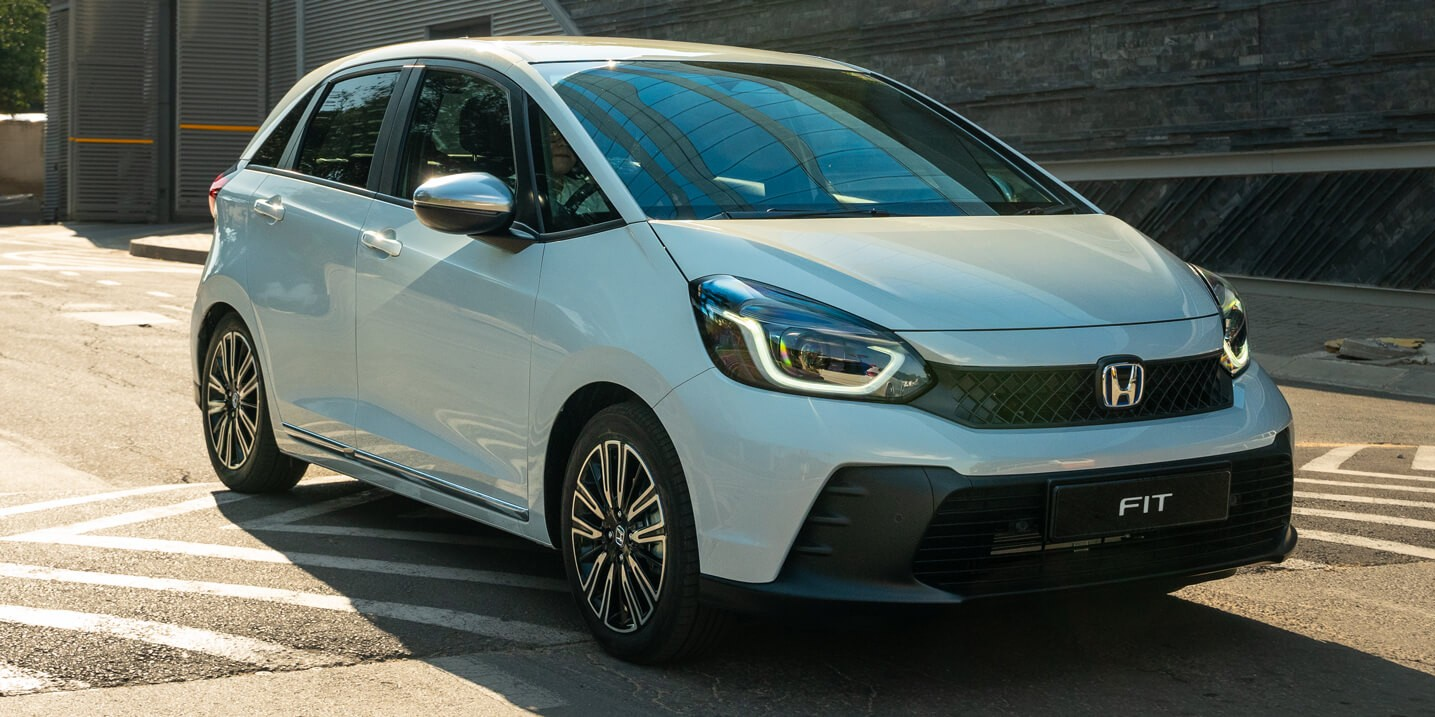GadgetWheels
Fit e.HEV is Honda’s unassuming powerhouse
The new hybrid electric compact hatchback from Honda is more than a wannabe, writes ARTHUR GOLDSTUCK.
At first glance, the new Honda Fit e.HEV (hybrid electric vehicle) might seem like just another wannabe in the expanding world of hybrid vehicles. But then, all hybrids would want to be the bearers of the good news delivered by this compact hatchback’s terrific fuel economy.
The biggest surprise on this vehicle came at the end of the test period: after driving for more than 400km, available range stood at 600km. Such numbers are deceptive, of course, as range is typically calculated on the basis of most recent driving behaviour rather than historic. In other words, if one is driving on flat roads and downhills for a while, the potential range can shoot up.
The same factor was at play in fuel efficiency: it ranged from 5.3l/100km on a long drive in mixed conditions to 2.5l/100km on an optimal drive. The latter is probably the lower extreme, given that we selected a road that would maximise efficiency, and the real world does not work that way. Honda promises 3.7l/100km, again probably in ideal conditions.
However, these numbers give one a sense of the impact of the Honda Fit e:HEV dual-motor hybrid system. The system combines a petrol engine with two electric motors, which also takes advantage of regenerative braking.
When the vehicle decelerates, kinetic energy that would otherwise be lost as heat in the brakes is instead captured by one of the electric motors acting as a generator. This energy is then used to recharge the battery.
The petrol engine also operates as a generator to charge the battery at times when it is most efficient to do so, such as when cruising at steady speeds.
This is all pulled together by a Battery Management System (BMS) that monitors the battery’s state of charge, temperature, and voltage, to keep the battery operating optimally.
The e:HEV seamlessly switches between power sources (petrol engine, electric motors, or both), and manages power distribution between driving the wheels and charging the battery, to the extent that one has to watch the instrument panel closely to know what power is in play.
The charging system is completely self-sufficient under normal conditions, meaning it doesn’t require external charging from an electrical outlet or charging station. Instead, it balances fuel consumption and electric propulsion based on driving conditions and battery status.
The Fit e:HEV still sports the familiar compact shape of its predecessors but introduces the hybrid system in tandem with a 1.5-liter DOHC i-VTEC engine, which offers both quiet operation and responsive performance.
The car features an updated infotainment system. However, the need for wiring up one’s phone via USB to access Android Auto feels like a step back for a vehicle that represents a hybrid step forward. The manual seat adjustments in the Fit e:HEV also feel like a step back in time, a surprising oversight in an otherwise modern vehicle. Adjusting the seat is not only cumbersome but also detracts from a high-tech environment.
That said, the driver instrument panel is delightfully digital, keeping one visually informed with attractive symbols, graphics and notifications of, for example, passengers not being strapped in. The Honda Sensing Suite offers comprehensive driver assistance systems, including adaptive cruise control, lane keeping assist, and collision mitigation braking.
Driving the Fit reveals a split personality: remarkably quiet at lower speeds with a hybrid system that transitions smoothly between power sources, while performing with an unassuming power when one pushes it. Acceleration is smooth, with the electric motor providing instant torque.
The Fit e:HEV is positioned at a competitive price point, considering the efficiency of its hybrid system.
Price and warranty:
The 1.5 Hybrid eCVT version sells at R544,900. The FIT e:HEV comes standard with a 5-year / 200,000km Warranty, a 4-year / 60,000km service plan and an additional extended warranty of 8-year / 200,000km covering the Lithium-ion battery and related components of the Hybrid system.

















